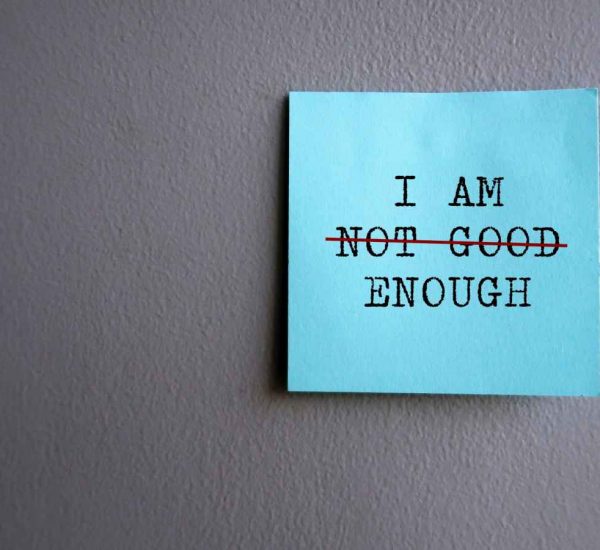Have you ever gone through the pain of being judged? Has it compelled you to stop expressing yourself in front of others?
Let’s be honest, as much as we hate being judged by others, we love to do it ourselves. It is an innate human tendency to be judgmental about their surroundings. However, that does nothing more than being an extra burden on your shoulders.
So, how do be non-judgmental to brush that burden off your shoulders? As Walt Whiteman said,
‘Be curious, not judgmental.’
Easier said than done, right? Nevertheless exceptionally fruitful and beneficial in the longer run. So, let’s get into it. But, before that let me shed some light on what a non-judgmental approach is.
What is a non-judgmental approach?
If you have ever been overly advised, cut off frequently in the middle of your talk, or looked down upon just because you dressed a certain way or said something you felt then you certainly know what being judgmental is. Judgmental people have the habit of evaluating people according to their preconceived notions. Instead of understanding people for who they are and what they want, they try to fix them in the boxes of good, bad, or neutral made in their minds.
Although in some situations it might help understand an event and trigger an effective response. But, often it is just another way of taxing your mind and making it do extra work. The moment you judge a person as good, bad, or neutral is the moment you discard all the upcoming information as worthy or unworthy. This is where you need to stop!
Instead of judging someone right away try to observe and understand. Try to step into the shoes of the other person. According to Norfolk County Council acceptance, genuineness and empathy are the key elements of a non-judgmental approach. It implies that instead of following your train of thought while having a conversation with someone, listen to what the other person has to say with an open mind. Allow the person to talk openly without having this feeling of being judged. Accept them as they are instead of evaluating them according to your own beliefs and thoughts.
Be genuinely interested in the situation and make them feel valued. Lastly, a non-judgmental approach requires you to feel their emotions. To put it briefly, place yourself in their situation before making any moral statements.
How to be non-judgmental in practice
If you find yourself criticizing and judging someone frequently these days it might be a sign to ponder over your life. Being unhappy, angry, frustrated, or unsatisfied with your own life might be the reason. So, read on to get to the root of the problem and know how to be non-judgmental.
1- Reflect on your life
Is there something that’s bothering you? Are you not happy with where you are? Do you instantly get frustrated or irritated? Is overthinking trivial matters becoming your guilty pleasure? Perhaps you should reflect upon your life before talking to someone about your concerns or before lending a helping hand to your loved one.
Think to yourself, are you in the mental state to approach something without being judgmental about it? You should be in the right frame of mind to help your friends, family, or anyone dear to you. You should be calm and content with your life first before approaching someone. Because something bothering you will make you frustrated, unhappy, or angry which will eventually reflect in your interactions with other people.
Reflect on your state of mind to make sure that your life’s experiences and events are not hindering your mental peace. So, to be non-judgmental you have to be at peace with yourself and your life’s journey.
Related:- How to be Happy with Yourself
2- How to be non-judgmental- practice acceptance, empathy, and genuineness
One of the most important factors that makes you a non-judgmental person is having an open mindset. Now, you might be thinking about what an open mindset is. Let me explain it to you. Open-mindedness means keeping aside your values, opinions, and beliefs while interacting with someone. Every person is different having their own set of beliefs and values. Having their likes and dislikes. No two people on this earth are exactly alike. Observe your household.
Do you and your siblings share the same traits? There might be something common that you enjoy but there won’t be everything similar. You will agree on one thing but you will disagree on the other. Something that you hold dear to you might not be of the same value to your sister.
Just look at the professions that you chose to be in for that matter. You aspire to be a doctor while your sister wants to be an architect. The point is everyone has their likes and dislikes. Everyone has dreams and goals. You are not one to judge someone if they choose to do otherwise.
As Laura K.Schenck author of mindfulness muse says practicing acceptance, empathy and genuineness will shed the extra weight of self-imposed sufferings off your shoulders, making you at peace with what you can come across without swaying away in the pool of emotions. So, to be non-judgmental in life you have to flip the coin sometimes, change the lens and look at it from a different perspective.
3- Not everything you feel is supposed to be said
As clichéd as it might sound, everything you feel is not supposed to be put out there. You need to hold back judgments and criticisms whether positive or negative while interacting with someone.
You don’t need to decide whether a person, situation, or thing is good or bad. Even if you consider something good or bad you don’t have to say it. Just keep it to yourself. When listening to someone talk about their experiences try to be in a neutral mindset. Don’t conclude instantly.
However, if you still do, don’t say it. Hold back your thoughts and feeling for a while. Because at the end of the day it is not about you. It is about those who went through the experience. The more you judge others, the more you get judged by others. Remember what goes around comes around.
So, if you want not to be judged by others you have to be non-judgmental first. Mind your own business even if you are a judge at a court’s proceedings (a bit of irony though). Stop acting as a life guru the next time someone approaches you for help or when you just don’t like anything about anyone.
Related: – How to Stay Optimistic
4- How to be non-judgmental- Put yourself in other’s shoes
I feel being judgmental is so easy that everyone can practice it without even trying. If you don’t like something criticize it to feel happy about yourself. If you are unhappy with your life’s choices blame others for not guiding you properly or even worse label them as total failures instead. Life can be a total mess sometimes, intriguing the inner critic within us, and making everything seem a whole lot worse than it is.
Have you ever wondered, what is the most common trait among all the judgmental freaks out there? It is their unhappy, unsatisfactory, or perhaps a life based on bad choices altogether. So, they feel a little better about themselves when someone else stumbles on this journey too. Making fun of others, judging their every single decision, and mocking other people is a hobby for them. But, you don’t want to be like them, right?
To be non-judgmental in life you have to put yourself in other’s shoes. Look at the circumstances that shaped them. Look at their life’s journey. Everyone goes through ups and downs in life which leaves an impact on them. Understanding their situations will not only make you a better human but you’ll also feel good about yourself and your life.
5- Be positive through verbal and non-verbal body language
While interacting with a person we often forget to listen effectively without comparing their journey with ours. We forget how to convey positivity with our bodies and our words. Often, we are busy checking our phones or doing something else.
The moment we hear something similar to what we had experienced we try to get away with it by saying ‘that’s normal, ‘that doesn’t make sense, or ‘I understand what you are going through but maybe you are overthinking.’
These lines can be an instant turn-off for anyone. You never know what a person going through something serious in life feels like after listening to such statements. Mostly, they are not even discussing it with you to find a solution to their problem. But, they want someone to listen to them and make them feel valued. Make sure to hold back such statements the next time.
Similarly, negative body language like not making sufficient eye contact, checking your phone constantly, or drifting your body away from the person, also makes the other person feel unimportant. So, try to be non-judgmental by maintaining positive body language while at the same time holding back negative statements.
Related: – Effective Communication Skills
Conclusion;
Learning how to be non-judgmental is one of the vital skills that will drastically improve your life the moment you start practicing them. Being non-judgmental does not mean being indifferent to your feelings. It just means being neutral about them. Not letting your feelings and emotions get in the way of your interaction with other people.
It means evaluating a person’s behavior after understanding their view on life. The tips mentioned above are just a place to start. They will help you to respond effectively without letting your own emotions come in the way. Try them and let us know how they changed your life in the comments section below.




